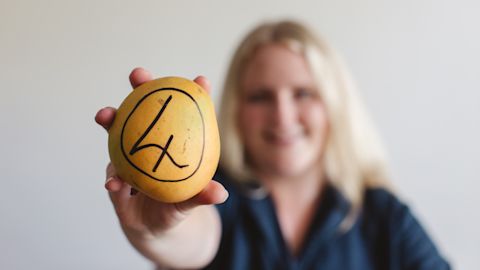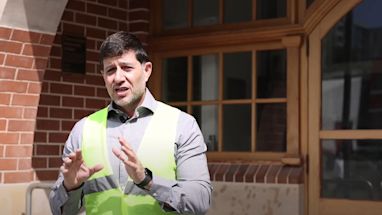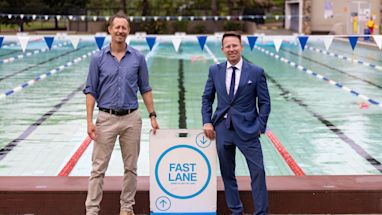The new year can bring mixed feelings.
The sense of a fresh start can be liberating. Yet the yawning expanse of all we could, should, need and want to do in the new year ahead can be daunting.
Here are a few simple things you can do to make you feel good about reducing harmful things and protecting our planet.
1. Wrap your leafy veggies in a damp tea-towel
If food waste was a country, it would be the third largest greenhouse gas emitter, behind the US and China.
In NSW alone households and businesses throw away as much as $10 billion of edible food each year. When food decomposes in landfill it releases methane, a greenhouse gas that is at least 28 times more harmful than carbon dioxide.
By making a few easy tweaks to the way you store food could make your veggies last longer. It will also divert waste from landfill and reduce greenhouse emissions.
Here’s a quick guide to storing vegetables, herbs and fruit.

2. Check your electricity plan
Switching to a renewable electricity plan is the 2nd most impactful thing you can do to reduce your carbon footprint – next to having rooftop solar – according to a study by UTS Business School. It's 13 times more impactful than recycling.
Many people think they’re buying renewable electricity but they’re not.
The ‘green’ plans from many providers aren’t anything about getting more renewable electricity made – they’re merely about buying offsets.
Also, depending on the provider you’re with, it’s not uncommon to find you’ve been bumped off your GreenPower plan from time to time.
So, it’s a good idea to get in the habit of checking your electricity plan once a year.
To be sure you’re buying accredited renewable electricity you need to opt in for 100% GreenPower.
It’s often an extra box you need to check in the sign-up process, and it’s usually itemised on your bill.

Learn more about accredited GreenPower, find providers and tips for shopping around.
3. Choose items with recycled content
This is an important part of recycling – buying back recycled content. We’re not really recycling unless we’re reusing and consuming repurposed materials.
These days you can find recycled content in shoes (even thongs), clothing, garbage bags, packaging and more.
Keep your eyes peeled and support the brands who are going the extra mile to incorporate more recycled content into their products in clever ways. This is a big step to building a more circular economy.

4. Cook electric
If your gas stove is on its last legs, look to replace it with an electric model.
This will help get polluting gas out of your home, as well as reduce greenhouse gas emissions.
A review of decades of science by the Rocky Mountain Institute, Physicians for Social Responsibility, and other environmental advocacy groups, concluded gas stoves made indoor air up to 5 times dirtier than outdoor air.
If you’re renting, or if replacing your stove is nigh on impossible anytime soon, you can feel good about using your using your microwave.
Compared with an electric oven, Finnish researchers calculated a microwave saves 75% of the time and 80% of the energy when cooking for one person.

If you were to do only one thing, choose GreenPower
So, what’ll make the biggest impact?
Fortunately, the answer to this is also the easiest action because it’s something you don’t need to do very often. It’s making sure you’re on an accredited 100% GreenPower electricity plan.
For most of us, our home energy use makes up the bulk of our emissions. By simply opting in for GreenPower you can drastically reduce your carbon footprint and help build more wind and solar farms in NSW.
Published 23 January 2023, updated 10 February 2023



